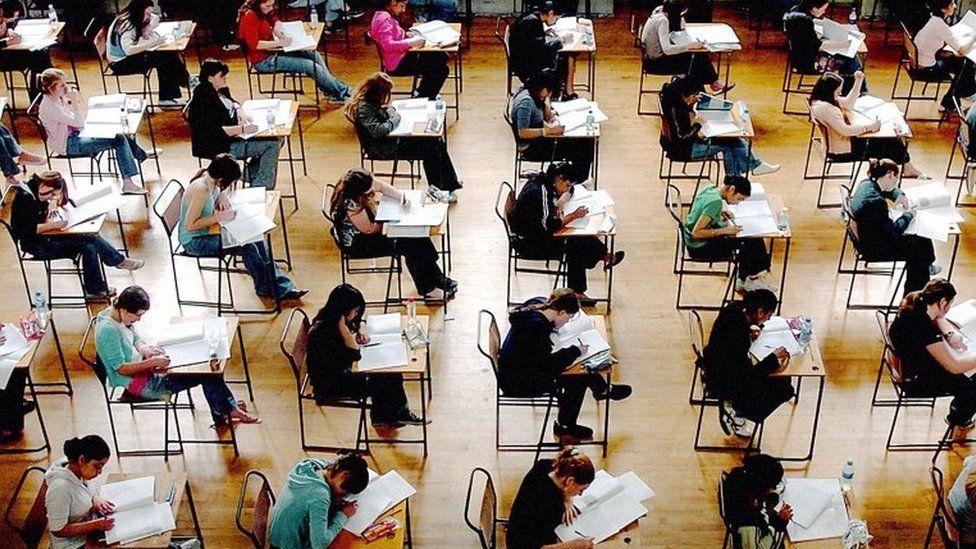NI students 'among poorest skilled' in developed world countries
- Published

University students from Northern Ireland have some of the poorest reading, writing and maths skills in the developed world.
Only students from England had worse literacy skills, according to a new report from the Organisation for Economic Co-operation and Development (OECD).
The analysis of 23 countries also found that only students in England and the United States of America had worse numeracy skills.
This means that around one in five Northern Irish students struggles with more than basic reading, writing and maths tasks.
The report says this means they can do little more than "read the instructions on a bottle of aspirin, or understand a petrol gauge".
The findings are contained in a detailed analysis of skills in England, which contains comparative data for 23 countries including Northern Ireland.
The report warns that "university teaching gives limited attention to low levels of literacy and numeracy."
Options
"Graduates with low basic skills gain modest returns from their qualifications and will often not be able to repay their student debts."
The report also says that students with poor basic skills should not normally take university degrees, and need to be offered better options in further education.
The OECD also found that, out of the 23 countries, only the Slovak Republic had a higher percentage of 16-29 year olds who were not in education or work than Northern Ireland.
However, Northern Ireland fared better when it came to the percentage of teenagers with poor reading, writing and maths skills.
Around 13% of 16-19 year olds in Northern Ireland had low literacy skills, while around 19% had low numeracy skills.
Countries like France, USA, Italy, England and Ireland had higher numbers of teenagers with low basic skills.
However, better-performing countries like Japan, the Netherlands, Finland and Korea had very low numbers of 16-19 year olds with poor literacy and numeracy skills.
The report calls for stronger basic schooling, and early intervention to ensure more young people have better skills in literacy and numeracy.
It also says young people should be offered "good quality apprenticeships and traineeships", and that more needs to be done to help adult learners.
- Published8 October 2013